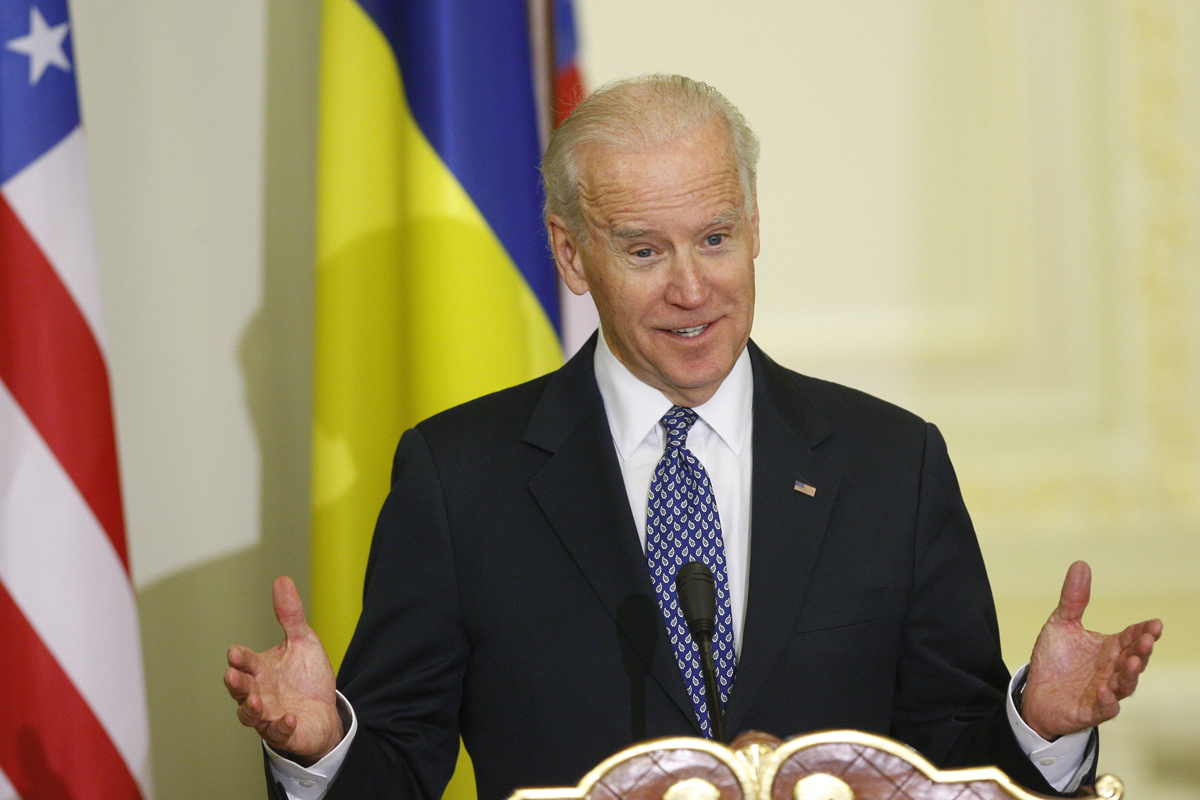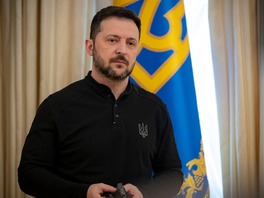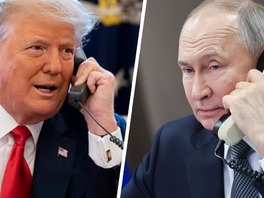Ukrainian leadership pays extremely high attention to the country’s relations with the United States. In a recent edition of the National Security Strategy of Ukraine, the U.S. was listed first among the countries, cooperation with which is of strategic priority to Ukraine. Among other issues, continued support from Washington is seen as crucial in Ukraine's ongoing standoff with Russia.
Notably, Joe Biden’s victory has raised a plethora of expectations in Kyiv. With Mr. Biden’s six visits to Ukraine as vice-president, good knowledge about the country, and a possible personal bias in Ukraine’s favor, his win could be promising more resolute support and a deeper partnership with the United States.
However, Biden will have to deal with not only Ukraine or even Russia; he will have to redesign US foreign policy and find an appropriate place for Ukraine in it. What could it look like?
Trump’s Legacy
In his recent article in Foreign Affairs, Biden has been highly critical of Donald Trump’s foreign policy. The 45th presidency was marked by a disruption of alliances, weakened leadership, and ill-prepared trade wars, leading to a decrease in America’s global influence and the multiplication of threats. However, not all of the said factors are entirely Trump’s fault.
The world is changing, and these transformations have been accelerated by the COVID-19 pandemic. Non-traditional threats have dominated the international agenda in 2020, which is a trend that’s likely to continue in the nearest future. Multilateral approaches and institutions, in turn, proved to be of limited efficiency. States and national levels of decision-making are gaining momentum.
China’s power continues to grow and expand. While speculations and potential scenarios of Beijing’s rise have been debated for years, it was Donald Trump’s presidency that turned words into actions.
The outgoing administration has invested a lot in a trade war with China, yet it still failed to claim victory. The OBOR initiative has become operational, setting a scene for contesting American power dominance in many ways. China’s challenge is not going to look like a traditional redistribution of influence after major military conflicts. Rather, it will be an attempt to close a technological gap and create China’s own zone of exclusive economic influence. Beijing will also look for allies. Thus, its challenge to American interests will be complex and multifold.
While Chinese pressure is growing, the world order that generates long-term benefits for the US is not functioning properly. The free trade regime benefits many competitors, and democracy is in retreat. Armament control regimes are growing weaker, all the while regional conflicts escalate. Military successes often turn into political defeats.
The crisis of leadership is not a novel trend in world politics; alternatively, it had gained prominence even before Trump assumed office. Required to react, President Trump chose the strategy of principled realism. In any bilateral relations, he made a bet on a still existing US advantage. Trump widely utilized threats, bluffing, and bargaining, even in relation to America’s long-term allies. In some way, he opted to pay with alliance commitments for additional advantages in bilateral bargaining. Trump’s vision of great America implied the ability to win in any tet-a-tet competition.
For Ukraine, the aforementioned had practical and integral implications in the recent four years. Secretary Mike Pompeo reinstated America’s non-recognition of the annexation of Crimea. The U.S. has also expanded and strengthened anti-Russian sanctions. Additionally, President Trump’s administration has taken a firm stance against Nord Stream-2, investing notable attention to the issues of energy security in Eastern Europe. Including some problems in EU-American relations, the Trump administration sought to improve its positions in Eastern Europe. It supplied weapons to Ukraine and paid additional attention to regional projects like the Three Seas Initiative.
 President Trump
President Trump
In the recent four years, however, Ukrainian-American relations didn’t quite meet the expectations of Ukrainian officials. The Charter on Strategic Partnership of 2008, as well as the bilateral Commission on Strategic Partnership, formally defines the two states as strategic partners; however, Ukraine enjoys neither American security guarantees nor a major non-NATO ally status. Even though the volume of the US’ technical and financial assistance has nearly doubled during Trump’s presidency, it remains moderate compared to the aid provided to Afghanistan, Iraq, or Ethiopia. The last visit of the US president to Ukraine took place in 2008.
After a sharp $750 million decline in 2014, bilateral trade has grown steadily over the recent years, reaching $3.7 billion in 2019. Ukraine is America’s 67th largest trading partner. In 2019, American foreign direct investment constituted $596 million.
The U.S. is Ukraine’s key security partner, providing about $500 million of assistance annually. In 2018, the Department of State approved the supply of anti-tank Javelin missiles to Ukraine, amounting to a total value of approximately $47 million. Three months earlier, the U.S. has also sanctioned the supplies of sniper rifles at $41.5 million. America’s firm position on the non-recognition of the annexation of Crimea – laid out in the Crimea Declaration – is of considerable importance to Ukraine [3]. In the past four years, Congress adopted over a dozen laws and resolutions supporting Ukraine, including in the areas of security, anti-corruption reforms, financial assistance, and energy security. These issues are likely to remain a focus.
Biden’s Policy toward Russia
It is common wisdom that the new administration will be more resolute in confronting Moscow. However, despite Biden’s rhetoric before the presidential election, increasing pressure on Russia will not be a simple task.
Biden is likely to take a more traditional approach to foreign policy, reestablishing close relations with allies and making them his main trump in containing China. He is also prone to strengthening democratic institutions, emphasizing the importance of democratic values. Even though Russia will be a perceived threat, the US will keep an open dialogue on the issues of strategic interest.
Washington’s policy toward Russia will be the determining factor affecting the US-Ukrainian partnership, including its limits and prospects. An akin understanding is hardly new for American strategists, yet it often comes as a surprise to Ukrainian decision-makers. Consequently, Ukraine needs a well-thought approach to the most fundamental issues of its relations with Russia.
When Donald Trump first became president, Ukraine feared that he could make a grand deal with Moscow at Kyiv’s expense. Biden does not instill any of the similar concerns. There are fixed elements in Washington’s approach to Russia, and the only question is how exactly the U.S. will confront the Kremlin. Will neighboring post-Soviet countries have a central role in the process?
For Joe Biden’s administration, Russia will pose a challenge, yet the said challenge will be nothing similar to the times of the Cold War. Judging by Biden’s earlier words, he believes Russian foreign policy to be aimed at breaking Western unity rather than restoring the USSR. The U.S. will confront Putin’s perceived desire to weaken or even dissolve NATO and the EU. Russia is largely dependent on oil and gas prices; it is also run by oligarchs and security services. Moscow interferes in foreign elections and is full of corruption. In some way, Russia could be an ideal state for the U.S. to confront, serving as a tool for the constant mobilization of regional players. Similar to a quarter-century ago, Washington will aim to change Russia, including by supporting its civil society against the non-democratic regime. Considering all the possible points of conflict, however, Biden seems to acknowledge the need for a dialogue.
 Vladimir Putin
Vladimir Putin
The Case for Ukraine
With Joe Biden’s victory, Ukraine will be hoping for increased American assistance. The most realistic expectations, however, are the major non-NATO ally status and MAP.
In general, the Biden administration is likely to continue Trump’s regional policy in Eastern Europe: close ties with Poland, sanctions against Nord Stream-2, the support for Ukraine, and a more active stance concerning Belarus. While there could be more dynamic discussions regarding NATO, a membership perspective is unlikely to be on the table for neither Ukraine nor Georgia. American support will continue to go hand-in-hand with conversations on combatting corruption, reforms, and democracy. An akin status-quo appears to be perfectly acceptable for the United States.
At the same time, the containment of China will add new dimensions to America’s Eastern Europe and Ukraine policies. Under current trends, China’s presence and influence on countries participating in the 16+1 initiative will be growing. The U.S. might consider additional political support in exchange for loyalty. In the case of Ukraine, Washington may exercise pressure to limit Ukrainian-Chinese contacts, especially in the area of technology.
Democratic values could serve as a marker for future US allies. The recent decade demonstrated that democracies are vulnerable. They have retreated, growing weaker. If Biden is serious about making democratic values a foundation of his foreign policy, the U.S. will have to promote reforms in poor and weak countries. Ukraine is one of them.
Ukraine has many expectations related to Joe Biden’s victory. Biden knows and supports Ukraine. However, will he pay a visit? Will Ukraine become a fundamental regional partner, receiving broader assistance and new prospects in Ukraine-US bilateral relations? Will President Biden go beyond symbolic steps?
It’s worth noting that Kyiv holds a large share of responsibility for the lack of achievements in its relations with Washington. During the years after the Maidan, Ukraine has failed to become an effective democratic state. The lack of transformation has posed a major obstacle to a much more ambitious agenda in Ukraine-US relations.





